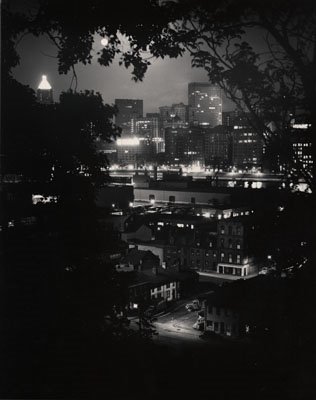Comment: What do you think? True or not true? I tend to believe this, but then again what about second chances? What about a skewed or wrong impression?
Friday, March 26, 2010
Quote of the day
Comment: What do you think? True or not true? I tend to believe this, but then again what about second chances? What about a skewed or wrong impression?
Saturday, March 13, 2010
Is contemporary literary fiction just a steaming heap of dung?
It made me feel really depressed about literary fiction. Like all the "good books" out there are really only Lifetime movies and nothing more. I understand the writer's point. Sometimes literary fiction does seem to blend and is more or less predictable in its degree of "literary"-ness to complicated plot ratio. But you can apply this to all forms. Geez, how many pieces of fruit can Cezanne paint? And Edward Hopper, enough already with the barren urban landscapes. We get it. Life is empty and quiet!
But is the only literature out the worth reading, non-linear, avant garde and hyper-intellectual? Basically the unreadable stuff? I guess it comes down to what you want out of a novel. And that's probably a personal list of demands.
For me, the difference is often the emotional response. I read Jonathan Franzen's The Corrections and Jonathan Lethem's Motherless Brooklyn. Both examples of literary fiction that were critically and commercially successful. Both were good, but honestly, unremarkable for me. I wouldn't re-read either. And trust me, I am not dissing either of these authors. Their achievement is not lost on me. I could not write what they wrote. What they wrote took dedication, talent and imagination. But I wouldn't reread what they wrote.
And yet I could reread The Great Gatsby and Lolita over and over again. Probably the book I have reread the most is To Kill a Mockingbird. It's strange how there are those books you can reread again and again and get something new every time. These books are like old friends.
But there are plenty of esteemed writers I've never read like Cormac McCarthy or William Faulkner (I've never read anything by William Faulkner!!!). I guess what I'm saying is there is a lot of literary fiction that is unremarkable and kind of bland, but at the end of the day novels are just stories. They are not essays or meditations, they are stories. As much as Milan Kundera argues that there are no characters just ideas, it's not the "ideas" that make you weep at the end of The Unbearable Lightness of Being. It's the characters and their universal plight and the brevity of life and the salvation and consolation of love.
So--I think--even using plain language, conventional plots, characters who resemble real life people, you can still write a great novel. One that will be beloved and reread over and over again. But they are not a dime a dozen and you probably have to read a lot to find the true gems.
Monday, March 1, 2010
In Blackwater Woods
by Mary Oliver
Look, the trees
are turning
their own bodies
into pillars
of light,
are giving off the rich
fragrance of cinnamon
and fulfillment,
the long tapers
of cattails
are bursting and floating away over
the blue shoulders
of the ponds,
and every pond,
no matter what its
name is, is
nameless now.
Every year
everything
I have ever learned
in my lifetime
leads back to this: the fires
and the black river of loss
whose other side
is salvation,
whose meaning
none of us will ever know.
To live in this world
you must be able
to do three things:
to love what is mortal;
to hold it
against your bones knowing
your own life depends on it;
and, when the time comes to let it go,
to let it go.
"In Blackwater Woods" by Mary Oliver, from American Primitive. © Back Bay Books, 1983.
Comment: I've never read anything by Mary Oliver but I want to get to know her better. Her name keeps popping up. Her poems are often cited at our Sunday UU services. Then I was reading a column in a local magazine here by a Baptist minister who talked at length about the meaning of two of her poems. Now if a poet inspires and is cited by both a UU minister and a Baptist minister...you can't help but be curious. "In Blackwater Woods" was one of the poems the Baptist minister referred to. It's the last two stanzas that really grab you. And in terms of truth, I feel she pretty much sums it up. The things we love the most in life are mortal. We must hold on to them dearly while we can, but with the knowledge that the people we love can't stay with us forever nor can we can stay with them forever. It's so painful, but it's one of the few truths we have.

